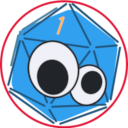In the late 1980s, when I was still very young, a traveling salesman convinced my parents to buy a set of World Book encyclopedias. I might have been in the kindergarten age range at the time, but they had already decided on home-schooling me, so this must have been seen as an investment in my education. I think it was a good one. We lived a few miles outside of town, so I wasn't exactly able to ride my bicycle to the library on a whim.
At the time, libraries were purely analog. We had to get our information from the reference section, or pore through the nonfiction stacks after searching the card catalog. That card catalog was a literal cabinet filled with index cards briefly describing everything in the library collection. The dawn of DOS-based computerized catalogs was still in the future, at least in my rural Minnesota library system.
This set of books was a springboard into anything I wanted to learn, and I was an eager learner from a very young age. The set is still on a shelf in my parents' living room bookcase. It includes a research guide and index volume, and cross-references topics at the end of many articles. It was an amazing repository of general knowledge about almost anything I needed to know as a student.
Compared to the internet, of course, it is woefully sparse. It also quickly went out of date as time marched on, such as when the Soviet Union collapsed. Updates would require buying another new set entirely. These are like a time capsule, yet much of the information remains relevant even now.

The old family encyclopedia set
For all you whippersnappers born after the World Wide Web, I grew up in a time when there was no Information Superhighway. Even when my parents first got a computer, it was not internet-capable. Many homes didn't get even dial-up internet access until the late 1990s. I remember booting up Where in the World is Carmen Sandiego from a DOS prompt, and using those encyclopedias to look up flags to narrow down clues. Either our floppy was a copy, or the official booklet went missing. I don't remember which.
When I was studying history, science, and biology, these books were useful reference items in addition to my textbooks. They allowed me to explore world geography, art, and culture to a degree most would consider primitive today, but then, it broadened my horizons to an amazing level. Looking through these books now, they seem almost quaint. The language is clear—I'd estimate it at an 8th-grade reading level—so it was written for accessibility to most readers. I don't remember any difficulty understanding it even in the early grades, but I was a good reader from the start.
Should you get an encyclopedia set in this day and age? Maybe. Websites go offline, or get edited. Censorship could become a real problem. Internet connections and electricity seem to get interrupted right when deadlines loom. Books endure, provided you keep them safe from fires and floods. Share your thoughts and experiences in the comments!

